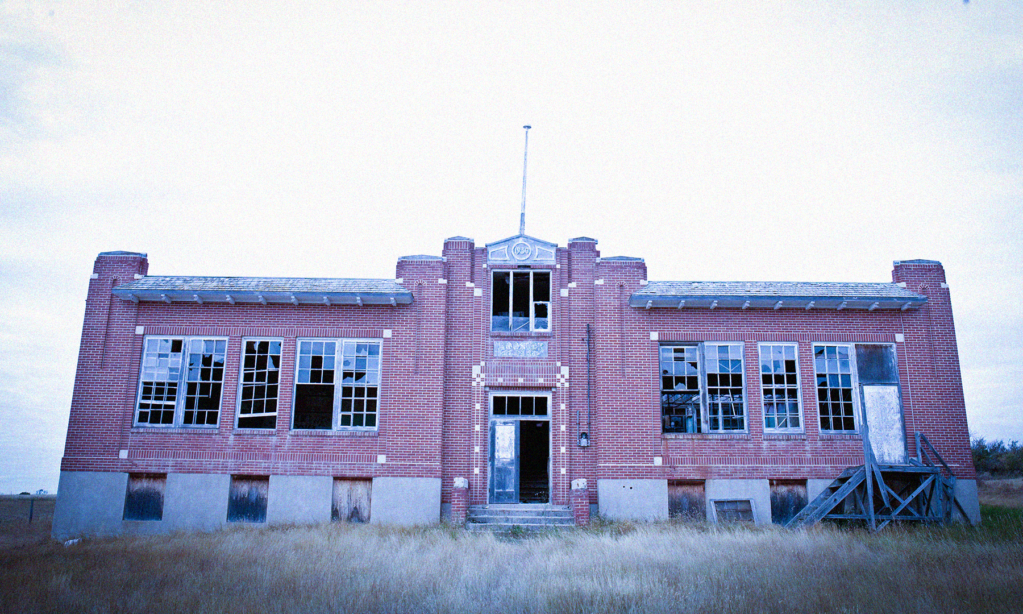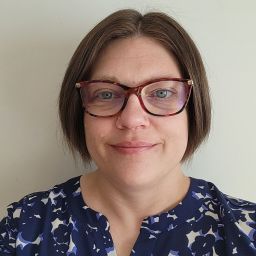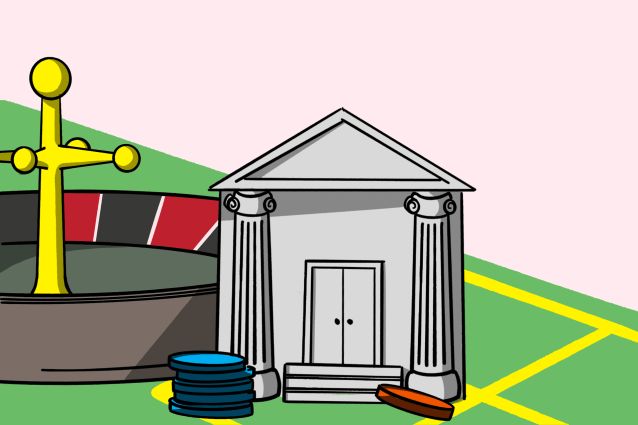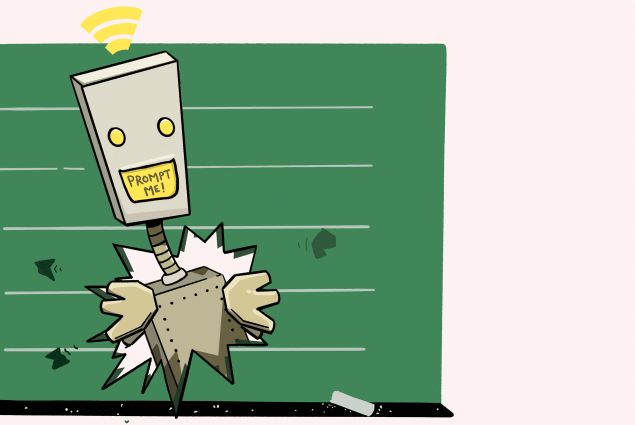Canadians have looked on with a mixture of bemusement, horror, and perhaps a touch of superiority as Republican governments and conservative parents in U.S. states have attacked public education on several fronts, from book bans, to furious attacks on the supposed teaching of critical race theory (CRT), to Florida's recent so-called "Don't Say Gay" legislation, which forbids instruction on gender identity in kindergarten through grade three.
Such attacks often provide cover for an already well-established privatization agenda. Whereas 20 years ago, "school choice" in the form of education vouchers and charter schools was presented as a solution to the supposed problem of "failing" public schools, now privatization is being presented as a way for parents to preserve their cultural authority over what their children learn about "divisive" topics, in particular racism and gender diversity. Betsy DeVos, who in her tenure as Donald Trump's Education Secretary made no secret of her hostility to public education, recently argued that "school choice" is the solution to "race indoctrination" in the public system.
Here in Alberta, it's hard for public education advocates to view these events with typical Canadian detachment. We are fighting our own version of these battles, as the United Conservative Party (UCP) government under Premier Jason Kenney declares a multi-front war on public education that echoes many of the talking points in the Republican playbook, with similar results – increased polarization and privatization of education.
In my last article for Our Schools, Ourselves, I discussed the UCP's ideological curriculum rewrite and their mischaracterization of the nearly-finished 2018 draft curriculum, which was initiated under a previous Conservative government and completed under the previous NDP-led government, as an exercise in left-wing indoctrination. This of course was mere cover for the intention to engage in a curriculum rewrite that would focus on right-wing staples such as "back-to-basics" literacy and math, along with a social studies curriculum straight out of the Victorian era. Demonizing the 2018 draft, which was ditched in spite of the years of preparation that went into it, allowed the UCP-led government to present their own rewrite as a reasonable course correction.
Jason Kenney tweeted in 2018 that "If the NDP tried to smuggle more of their politics into the classroom through their [draft] curriculum, we will put that curriculum through the shredder." Since then he has only ramped up the language against supposed "woke" values in schools in the face of widespread opposition to the curriculum draft from school boards, teachers and parents. In the face of an April 2022 internal leadership review that could displace him from the helm of the party (as of this writing), Kenney is doubling down. Speaking to party insiders at a general meeting, he stated: "Instead of divisive woke-left ideology like critical race theory, cancel culture, and age-inappropriate sex education, we are putting kids and the authority of parents back in charge of our education system." While none of these things was part of any previous curriculum, these are frequent targets of attack by U.S. Republicans, and "parent choice" is often positioned as the solution.
Undermining teachers and public boards is another popular Republican tactic to manufacture consent for ideological curricula and privatization, and we've seen the current government deploy these tactics in Alberta. In 2022, Alberta Education removed disciplinary oversight of teachers from the Alberta Teachers’ Association, placing this responsibility with a cabinet-appointed commissioner instead, a decision made without any consultation with the ATA. The Premier often refers to the ATA as "the Alberta Teachers' Union," even though it is a professional association with a mandate that goes beyond collective bargaining; the implication is that the ATA is primarily interested in protecting teacher privileges.
In 2019, Education Minister Adriana LaGrange ordered all Alberta school divisions to remove the word "public" from their names, an early indication of the UCP's intention to blur the lines between public and private education. That same year, the Minister ordered an independent financial review of the Calgary Board of Education, the province's largest public board. In an interview, the Minister implied significant financial mismanagement on the part of CBE, and stated, "My big hammer is to fire the board." The review, while making recommendations for improvement, did not find any indication of financial mismanagement. The big hammer had to go back in the toolbox.
While conservative parties are often in conflict with unions and public boards, it's hard not to see these attacks on school boards and the ATA as motivated in part by a desire to delegitimize teacher and board opposition to the draft curriculum, and to tarnish the reputation of public education in support of a privatization agenda.
Privatization of education under the mantra of "school choice" has been a long-standing practice in Alberta, which arguably already offers more privatized options than any other province. Education researcher Curtis Riep distinguishes between "public education" and "provincially funded education" in Alberta. Public education encompasses the regular public, separate (Catholic) and francophone school divisions, which are accessible to all, governed by elected trustees, and entirely publicly funded. The category of "provincially funded education" includes three major types: private schools, home education and charter schools.
Accredited funded private schools in Alberta receive the highest level of public funding in the country, with up to 70 per cent of the funding that would go to those students in the public system "following" them to private providers. Other provinces fund private schools at a lower percentage, with some, notably Ontario, providing no funding to private schools. It should be noted that private schools that choose not to be accredited (willing to use certificated teachers and follow the Alberta curriculum) do not receive provincial funding.
Home education is another area where privatization has taken hold in Alberta; we have the largest number of homeschooled students in the country. Statistics Canada data indicate that in 2019/20, 14,730 Alberta children were homeschooled, compared to only 6,565 in Ontario, the province with the next highest number. The UCP has made changes to the rules around home education, removing the requirement that such programs be supervised by a school authority.
In his report on home education in Alberta, Dr. Riep raises concerns about the lack of oversight and accountability that this loosening of regulations may bring, as it removes the opportunity for home learners to be assessed or supported by teachers. This is concerning because the number of homeschooling families in Alberta is on the rise, and the COVID-19 pandemic has accelerated this trend. Dr. Riep notes that homeschooling is "intrinsically linked to the 'school choice' movement since they both emphasize, above all else, parental choice and control to decide the education of their children."
Supporting parental choice is also a stated goal of American-style charter schools, which of all the provinces only Alberta has adopted. Charter schools are 100 per cent publicly funded, but essentially function as private schools that receive public funding. They are governed by their own, non-publicly elected boards, and are accountable directly to the Education Minister. They are not required to hire unionized teachers.
The objectives of charter schools are variously described as some combination of: increasing parent choice by offering specialized programming that the regular public system does not offer; acting as laboratories for innovative education practices that can be translated to the larger public system; and forcing public boards to "innovate" in order to compete for students by offering alternative programs of their own.
Charter schools are not allowed to refuse admission to any student "if sufficient space and resources are available," but in practice some schools require applicants to complete an academic assessment, often at their own expense. In Alberta, there are charter schools catering to many niches, including but not limited to gifted education, Suzuki music education, "traditional learning," and youth whose education has been interrupted. Even if a charter school doesn't have an established admission assessment, charter schools' marketing language makes it clear what kind of students would be a "good fit" with the school's philosophy.
Charter schools were established in Alberta in 1994, with an initial cap that constrained their development until the UCP removed it shortly after being elected in 2019. The current government further signaled its support for charter school growth by introducing the Choice in Education Act, which removed the requirement for interested parties to first approach public boards about developing alternative programs before proceeding with a charter school application.
In the most recent provincial budget, the government provided $72 million in dedicated funding to support charter school expansion, and has indicated that it is interested in the development of "collegiate" or vocational charter schools, an approach that calls to mind the "streaming" practices of earlier decades. This practice is also being revived in the U.S., often under the label of "career and technical education."
As charter schools have positioned themselves as attractive alternatives, public boards have felt compelled to compete with an array of alternative programs, ranging from various language options, gender-specific schools, specialized approaches such as Montessori, and faith-based programming. That last item is of particular interest because charter schools may not be religious in nature. Several faith-based alternative programs operating under public boards in fact began their lives as private schools, and continue to charge fees that can amount to several thousand dollars per year for each student. Though (“technically”) boards may not charge tuition for such alternative programs, a number of these schools get around this prohibition by requiring families to pay "society fees" to a nonprofit society affiliated with the school. This is a little-discussed practice, but multiple faith-based alternative programs appear to engage in it, raising the question of how "public" these schools really are.
Despite the array of publicly funded private options described above, the government has demonstrated a clear intention to support more private options in the name of "parent choice." This stance is clearly popular among the UCP base; if anything it does not go far enough for some. At the party's 2019 Annual General Meeting, members voted in favour of a policy resolution that called for a voucher system for education, which would provide equal per-student funding for any educational option chosen by parents.
While Minister LaGrange indicated the government was not looking at implementing such a policy, clearly this idea has the support of government backbenchers such as Dan Williams, who has referred to public education as "absolutely backwards," and mused that if the province could privatize liquor stores, then the same could be done for education. He went on to accuse the public education system of "nationalizing the family," a common refrain of many on the far right who appear to see public education and the things it teaches as a threat to the supremacy of a certain type of family authority in a child's life.
Another feature of the American privatization movement that appears to be making its way north is the establishment of “parent choice” Astroturf (phony grassroots) groups. In May, Alberta parents started receiving marketing materials from the curiously named “Alberta Parents’ Union,” a group that came seemingly out of nowhere, led by Executive Director Jeff Park. Park is a former executive assistant to Jeff Callaway, the so-called “kamikaze candidate” accused of running a phony campaign to ensure Jason Kenney’s UCP leadership victory over Brian Jean. Park was fined $10,500 by Alberta’s Election Commissioner for irregular contributions to Callaway’s campaign.
Park is taking his newly formed organization on the road to over 20 Alberta communities. While the marketing for these events states that the APU welcomes everyone with an interest in education, the group’s agenda is clearly pro-privatization. The group is already beginning to promote vouchers, using very similar language to the UCP AGM policy resolution.
It is hard not to see a resemblance between this group and U.S. groups like the National Parents’ Union, an American “parent organization” that advocates for privatization. The group’s status as a grassroots parent organization has been credibly called into question, and its funding appears to come not from ordinary parents, but from funders like the billionaire pro-privatization Walton family. In the case of the Alberta group, it’s not clear how they are funded.
It is dismaying as a public education advocate to see the elevation of “parent choice,”, no matter how fringe those choices may be considered, over the right of children to receive an equitable public education. Such a stance also ignores the long-held social consensus that public education is a societal good from which we all benefit, whether or not we have children in the system. The fragmentation of school choice in the U.S. has arguably contributed to a breakdown in social cohesion and a political polarization that appears to be self-reinforcing; the more fragmented education becomes, the more extreme are the demands for even more "parent choice" to protect children from ideas that certain parents don't like. If the public system isn't to people's liking, the private sector is there to provide, and governments can be pressured to send public dollars their way, despite a complete lack of evidence that private providers deliver better results.
We must not view America's failed privatization experiment as an aberration that couldn't happen here, but as a cautionary tale. The vast majority of parents in Alberta choose public education; we must be prepared to demand that policy makers support, fund and improve the public system that serves all children, instead of undermining, eroding and privatizing it to serve the interests of a vocal minority.







